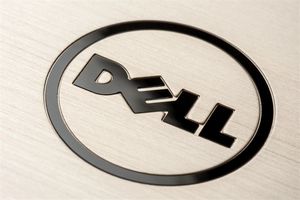FN Media Group Presents Oilprice.com Market Commentary
London – August 6, 2021 – Namibia has every right to celebrate. It’s never produced a barrel, but now, its Kavango Basin test wells have hit hundreds of meters of oil. And the junior exploration company behind it all thinks it might be sitting on a potential mammoth conventional oil play. Mentioned in today’s commentary includes: Canadian Natural Resources (NYSE: CNQ), Enbridge Inc. (NYSE: ENB), Baker Hughes (NYSE: BKR), Chevron (NYSE: CVX), Royal Dutch Shell Plc. (NYSE: RDS.A).
On August 5th, Reconnaissance Energy Africa (RECO, RECAF) and its partner, NAMCOR, Namibia’s state oil company, released their most stunning results yet—with lab tests comprehensively confirming an active petroleum system and results from a second test well hitting 350 meters of hydrocarbon showings. That’s on top of the first test well’s showings of 250 meters of hydrocarbons.
This is a huge showing for this junior company’s maiden drills. In fact, it’s so huge that optimism is growing that they might have actually test-drilled right into a reservoir on the first shot. Referring to Jarvie’s graph below, in zone 2 where the oil saturation exceeds 100, they’ve drilled into a very thick zone of potential production or reservoir. “It’s the primary target for potential production testing.” If that doesn’t get investors excited I don’t know what will.
The first well (6-2) hit over 250 meters of hydrocarbon shows after drilling to a depth of 2,294 meters. The second test well returned 350 meters of hydrocarbon shows after drilling to a depth of 2,780 meters.
Sample logging data and analysis was conducted by Horizon Well Logging Inc, whose CEO, Doug Milham, described the play as “an exciting oil and gas exploration project with world-class potential”.
“The presence and quality of oil and gas shows encountered while drilling the 6-2 and 6-1 wells was remarkable, with many positive indicators of hydrocarbons encountered throughout both wells,” Milham said. “Our sample logging data and analysis has identified significant intervals of oil and natural gas in each of the two wells drilled, with varying characteristics from multiple zones.”
The results mean that RECO and NAMCOR have met all the drilling program requirements to extend the exploration period on this play. Exploration now advances to the next phase, with an ambitious 450-kilometer 2D seismic acquisition already underway, contracted to world-class Polaris.
“The goal of the stratigraphic test well program, approved by the Namibian government, was to establish the presence of a working conventional hydrocarbon system in this new basin. The results we have achieved from these first two wells have significantly exceeded our expectations,” Recon Africa CEO Scot Evans said in a press release on August 5th.
Africa’s Potential Middle East-Style Play
Previously, big names like Wood Mackenzie and world-class geochemist Daniel Jarvie had compared Kavango’s oil potential to the Texas Permian, with Jarvie estimating “conservatively” the basin could have generated billions of barrels of oil (after only considering 12% of RECO’s license area).
“The immense productivity in Saudi Arabia, Iraq, and Iran (especially the Zagros belt) is based on multiple stacked source rocks and several carbonate reservoirs which are involved in many types of traps,” Jim Granath, RECO’s leading geologist, told us in July, right before the results of the second drill were released.
“This is not to say we have discovered a new Middle East, but some of those are in structures –the Zagros in particular in Iran and Iraq—that are similar to what we suspect we have drilled into. So, the Kavango rocks may have similar reservoir properties to some of those,” he said.
What Recon Africa (RECO, RECAF) has found so far is what geologists dream of at this early stage in the exploration game. The 6-2 well in Kawe, Namibia, was drilled to a final depth of 2,294 meters, encountering over 250 meters of conventional migrated light oil, natural gas and natural gas liquids.
Three hydrocarbon-bearing zones, fluid types, hydrocarbon migration, characteristics and potential for production testing are illustrated in this chart and with more information explaining the findings here.
The 6-2 well has been left in a state that allows it to be re-entered to run a Vertical Seismic Profile (VSP) and test potential zones of interest. The data from this well, combined with the multi-zone potential significantly increases the chances that ReconAfrica has encountered a productive reservoir to be tested in its very first drill. Now, the VSP and the 2D data will further delineate potential structures in and around the well.
The 6-1 well in Mbambi, Namibia (only 16 kilometers from the first well), was drilled to a final depth of 2,780 meters, encountering 350 meters of oil and natural gas shows over 7 potential zones. RECO will still get more results from the logging data, cuttings and cores, which are now being prepared and shipped to the United States for further analysis.
The Final Verdict: Kavango Is Being De-Risked for Exploration
Recon Africa and NAMCOR have now significantly reduced a big part of the geologic risk in the Kavango Basin. This is an active petroleum system. And they’ve accomplished this in only 2 wells and they might have even found a reservoir with the first well. That’s a remarkable anomaly in the industry. Offshore Norway, it took 30 wells to get to the point that Kavango is already.
What we find astounding here is that the first two wells are similar in terms of the distribution of the oil and gas shows running up and down the stratigraphy. And according to RECO’s geologists, this is “decidedly a conventional play” because the hydrocarbons are in rocks into which they have migrated.
So, what comes next on this path towards production? ReconAfrica (RECO, RECAF) and NAMCOR will now be using drilling and 2D seismic data to determine the planning and execution of future drilling locations.
Future drilling locations will probably target potential hydrocarbon-bearing structures from the seismic program with the aim of achieving commercial levels of oil and gas production. Once the seismic acquisition is complete, ReconAfrica is likely to drill one or two more wells this year, with an additional two to four wells in the first half of next year.
Most importantly for investors, the 2D seismic acquisition could facilitate a farm-out JV process for ReconAfrica, with the aim to significantly boost exploration and development of this giant, 8.5-million-acre play.
Big Oil Is Betting Big On Higher Crude Prices
Netherlands-based, Royal Dutch Shell Plc. (NYSE: RDS.A) operates as an integrated oil, gas and chemicals company. Shell remains one of Big Oil’s least optimistic companies when it comes to the long-term oil and gas outlook Shell says we might already be past peak oil demand and is bracing itself\ for a worst-case scenario: Demand to never fully recover.
“I think a crisis like this has the potential to capitalize society into a different way of thinking, much as the Paris Agreement has had,” company CEO Ben van Beurden has told investors.
Shell has also revealed that it expects ~75% of its proved oil and gas reserves to be exhausted by 2030 and nearly all by 2050.
Chevron (NYSE: CVX) is a leader in the industry and the second-largest oil company on the New York Stock Exchange. . It was founded in 1879 in California by John D. Rockefeller and partners as the Standard Oil Company of Ohio, which became part of the Standard Oil trust when it was dissolved on January 1, 1911. One year later, Chevron Corporation (then Texaco) bought out its former partner for $10 million ($2 billion today). The new corporation then changed its name to reflect this shift from being primarily an oil refining business to one also involved in natural gas exploration and production. With bets on both oil and natural gas, the company is looking to take advantage of both fossil fuels.
Baker Hughes (NYSE: BKR) recently announced what it calls the largest deployment of its remote operations digital technology, and this deployment involved all of Aramco’s drilling operations. This is how the company describes what the project entails: “a single solution that covers data aggregation from the edge; real-time, unified data streaming and visualization; data management; software development services; rig-site digital engineers; and monitoring personnel.”
In other words, what we may call remote drilling in a conversation actually involves a comprehensive push to unify and centralize operations in the upstream industry. Baker Hughes has been doing it for 20 years already, and its peers are doing it, too. According to Jegatheeswaran, this is the future of the upstream.
Enbridge Inc.(NYSE: ENB), is a Canadian multinational energy company. Founded in 1949 by the World War II veterans Kenneth W. Dam and Arnold R. Parry, it has since grown to be one of North America’s largest pipeline companies with over 2 million miles of pipelines across Canada and the United States. They also provide services for gas transmission, natural gas storage, distribution as well as power generation and electricity retailing. They have more than 150 years combined experience in developing energy infrastructure that provides Canadians with affordable energy that they can rely on to heat their homes during long winter months or cool them down during hot summer days.
Canadian Natural Resources (NYSE: CNQ) is one of the biggest names in the Canadian energy sector with operations spanning across North America and Western Europe. The company has been around since 2010 but has had roots dating back to 1952 when Panarctic Oils was founded by Harold Lothrop, Kenneth Lothrop (Harold’s father), and two other partners. Unlike many of its peers, Canadian Natural Resources kept its dividend intact after swinging to a loss for the first half of the year, while Canada’s producers are scaling back production by around 1 million bpd amid low oil prices and demand.
By. James Stafford
**IMPORTANT! BY READING OUR CONTENT YOU EXPLICITLY AGREE TO THE FOLLOWING. PLEASE READ CAREFULLY**
Forward-Looking Statements. Statements contained in this document that are not historical facts are forward-looking statements that involve various risks and uncertainty affecting the business of Recon. All estimates and statements with respect to Recon’s operations, its plans and projections, timing of drilling, other exploration and results, size of potential oil reserves, comparisons to other oil producing fields, oil prices, recoverable oil, production targets, production and other operating costs and likelihood of oil recoverability are forward-looking statements under applicable securities laws and necessarily involve risks and uncertainties including, without limitation: risks associated with oil and gas exploration, including drilling and other exploration activities, timing of reports, development, exploitation and production, geological risks, marketing and transportation, availability of adequate funding, volatility of commodity prices, imprecision of reserve and resource estimates, environmental risks, competition from other producers, government regulation, dates of commencement of production and changes in the regulatory and taxation environment. Actual results may vary materially from the information provided in this document, and there is no representation that the actual results realized in the future will be the same in whole or in part as those presented herein. Other factors that could cause actual results to differ from those contained in the forward-looking statements are also set forth in filings that Recon and its technical analysts have made. We undertake no obligation, except as otherwise required by law, to update these forward-looking statements except as required by law.
Exploration for hydrocarbons is a highly speculative venture necessarily involving substantial risk. Recon’s future success will depend on its ability to develop its current properties and on its ability to discover resources that are capable of commercial production. However, there is no assurance that Recon’s future exploration and development efforts will result in the discovery or development of commercial accumulations of oil and natural gas. In addition, even if hydrocarbons are discovered, the costs of extracting and delivering the hydrocarbons to market and variations in the market price may render uneconomic any discovered deposit. Geological conditions are variable and unpredictable. Even if production is commenced from a well, the quantity of hydrocarbons produced inevitably will decline over time, and production may be adversely affected or may have to be terminated altogether if Recon encounters unforeseen geological conditions. Adverse climatic conditions at such properties may also hinder Recon’s ability to carry on exploration or production activities continuously throughout any given year.
DISCLAIMERS
ADVERTISEMENT. This communication is not a recommendation to buy or sell securities. Oilprice.com, Advanced Media Solutions Ltd, and their owners, managers, employees, and assigns (collectively, the “Company”) have not been paid by Recon for this article, but has been paid for a promotional campaign in the past and may again be paid in the future. As the Company has been paid and may again be paid in future by Recon for promotional activity, there is a major conflict with our ability to be unbiased, more specifically:
This communication is for entertainment purposes only. Never invest purely based on our communication. We have not been compensated for this particular article but may in the future be compensated to conduct investor awareness advertising and marketing for RECO. Therefore, this communication should be viewed as a commercial advertisement only. We have not investigated the background of the company. Frequently companies profiled in our alerts experience a large increase in volume and share price during the course of investor awareness marketing, which often end as soon as the investor awareness marketing ceases. The information in our communications and on our website has not been independently verified and is not guaranteed to be correct.
SHARE OWNERSHIP. The owner of Oilprice.com owns shares of this featured company and therefore has an additional incentive to see the featured company’s stock perform well. The owner of Oilprice.com will not notify the market when it decides to buy more or sell shares of this issuer in the market. The owner of Oilprice.com will be buying and selling shares of this issuer for its own profit. This is why we stress that you conduct extensive due diligence as well as seek the advice of your financial advisor or a registered broker-dealer before investing in any securities.
NOT AN INVESTMENT ADVISOR. The Company is not registered or licensed by any governing body in any jurisdiction to give investing advice or provide investment recommendation.
ALWAYS DO YOUR OWN RESEARCH and consult with a licensed investment professional before making an investment. This communication should not be used as a basis for making any investment.
RISK OF INVESTING. Investing is inherently risky. Don’t trade with money you can’t afford to lose. This is neither a solicitation nor an offer to Buy/Sell securities. No representation is being made that any stock acquisition will or is likely to achieve profits.
DISCLAIMER: OilPrice.com is Source of all content listed above. FN Media Group, LLC (FNM), is a third party publisher and news dissemination service provider, which disseminates electronic information through multiple online media channels. FNM is NOT affiliated in any manner with OilPrice.com or any company mentioned herein. The commentary, views and opinions expressed in this release by OilPrice.com are solely those of OilPrice.com and are not shared by and do not reflect in any manner the views or opinions of FNM. FNM is not liable for any investment decisions by its readers or subscribers. FNM and its affiliated companies are a news dissemination and financial marketing solutions provider and are NOT a registered broker/dealer/analyst/adviser, holds no investment licenses and may NOT sell, offer to sell or offer to buy any security. FNM was not compensated by any public company mentioned herein to disseminate this press release.
FNM HOLDS NO SHARES OF ANY COMPANY NAMED IN THIS RELEASE.
This release contains “forward-looking statements” within the meaning of Section 27A of the Securities Act of 1933, as amended, and Section 21E the Securities Exchange Act of 1934, as amended and such forward-looking statements are made pursuant to the safe harbor provisions of the Private Securities Litigation Reform Act of 1995. “Forward-looking statements” describe future expectations, plans, results, or strategies and are generally preceded by words such as “may”, “future”, “plan” or “planned”, “will” or “should”, “expected,” “anticipates”, “draft”, “eventually” or “projected”. You are cautioned that such statements are subject to a multitude of risks and uncertainties that could cause future circumstances, events, or results to differ materially from those projected in the forward-looking statements, including the risks that actual results may differ materially from those projected in the forward-looking statements as a result of various factors, and other risks identified in a company’s annual report on Form 10-K or 10-KSB and other filings made by such company with the Securities and Exchange Commission. You should consider these factors in evaluating the forward-looking statements included herein, and not place undue reliance on such statements. The forward-looking statements in this release are made as of the date hereof and FNM undertakes no obligation to update such statements.
OILPRICE.COM CONTACT INFO
For all editorial and technical questions please contact info@oilprice.com or call: +44 20 3962-5740
SOURCE: Oilprice.com





